To meet the critical need for emotional and spiritual care following disasters, the Billy Graham Rapid Response Team (BG-RRT) currently has chaplains in Canada, the United States, the U.S. Territory of Puerto Rico, Australia, and the United Kingdom. These approved, crisis-trained volunteer chaplains are carefully selected to demonstrate the compassion of Jesus Christ, and appropriately share God’s hope through the One who “heals the brokenhearted and binds up their wounds” (Psalm 147:3).
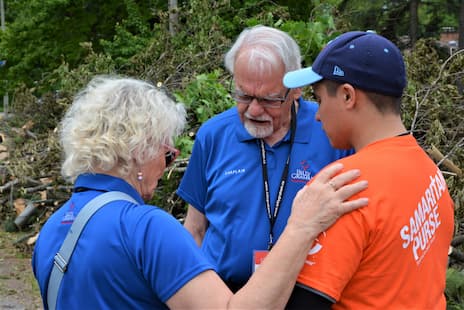
How to Begin
1. Pray about becoming a volunteer chaplain to serve with the Billy Graham Rapid Response Team.
2. Complete the chaplain application.
3. Attend one of our Sharing Hope in Crisis seminars in-person or take the course for free online.
4. Attend three Critical Incident Stress Management courses.*
View more information about training opportunities.
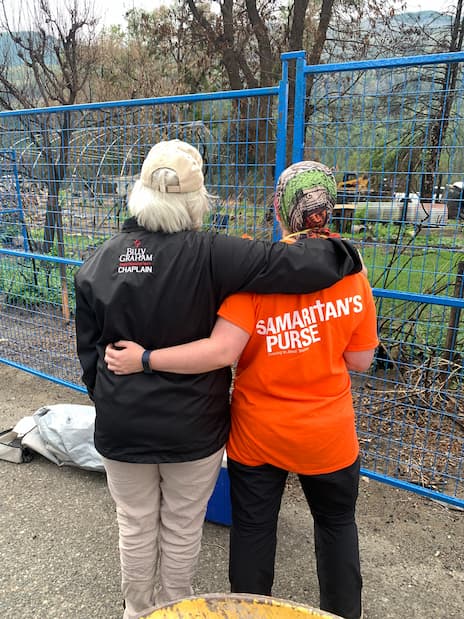
What to Expect
As a Billy Graham Rapid Response Team chaplain volunteer, you will be invited to deploy according to your availability, as needed by BG-RRT for disaster response.
Upon arrival to a deployment, you will meet your chaplain coordinator—BG-RRT’s on the ground leadership—to get settled and oriented to that specific site and crises. Each coordinator has vast experience in disaster response and ministry. They will give you assignments, check on your personal well-being and organize all logistics.
As stated in the chaplain application packet, you will live at a camp, which may be a church or another site. Everyday living activities such as cleaning, cooking, washing, etc., have to happen and may require your help. Each location is different and no two deployments are the same.
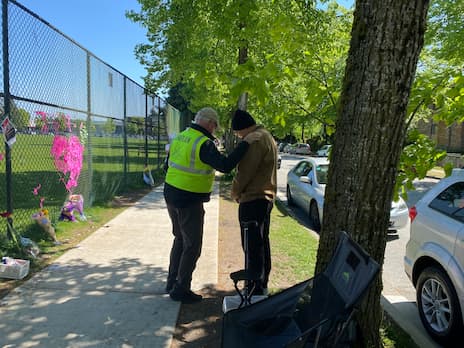
BG-RRT Deployment Rules and Etiquette:
- Deploy ready to minister.
- Be in the Word so you are spiritually strong.
- Be in prayer. Alert friends and family about your deployment so they can join you in prayer, too.
- Be ready to walk! You can expect to walk 2-3 miles a day while ministering.
- Have a plan in place to contact your family back home so relationships stay strong.
- Do not deploy if you are dealing with unresolved stressful activities or decisions in your life.
FAQs
What is the mission of the Rapid Response Team?
- The Billy Graham Rapid Response Team trains God’s people for grief ministry and deploys crisis-trained chaplains to provide emotional and spiritual care to those affected by man-made or natural disasters.
What is unique about the Rapid Response Team?
- A ministry in a globally recognized non-profit organization.
- It is non-denominational, thereby widely accepted.
- It provides emotional and spiritual care from a Biblical perspective along with clinical understanding.
- Its chaplains are specifically trained in crisis intervention for disaster settings.
- Partners with both churches and ministries globally.
- Provides applicable training for the local church, as well as for chaplains.
- Supported in prayer by a global prayer network.
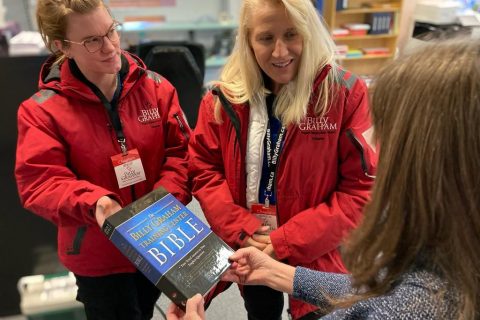
Who would make a good chaplain?
- Rapid Response Team chaplains are to be selfless people who are emotionally and spiritually mature, and desire to share God’s hope and comfort with survivors of tragedies. Chaplains are also to be solidly grounded in God’s Word and comfortable praying, when appropriate, with survivors. Chaplains should be willing to continue to learn spiritually, but also should know that some technical training will be expected in order to communicate ministry needs back to the chaplain coordinator and/or the RRT office staff.
What kind of training should chaplains have?
- The Billy Graham Rapid Response Team (BG-RRT) requires four training courses following approval as a chaplain. You may however take all of these courses prior to applying to be a chaplain. These courses teach chaplains both deployment expectations and pre-deployment requirements.
-
-
- Sharing Hope in Crisis (SHIC) This course can be taken during a one-day seminar or through our on-demand training online, done at your own pace. Click here for more information.
- Three BG-RRT-approved Critical Incident Stress Management (CISM) courses, offered by the International Critical Incident Stress Foundation (ICISF), should be completed within a chaplain’s first two years. For a complete list of approved CISM courses for RRT, click here.
-
How do I apply to be a chaplain?
-
- Every candidate must complete a chaplain application.
References listed on the application form will be contacted. Please note that completing a training (CISM or Rapid Response Team training) does not automatically guarantee your acceptance as a Billy Graham Rapid Response Team chaplain.
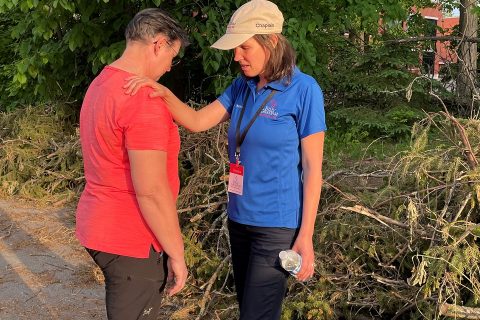
Are chaplains paid?
- Chaplains serve on a volunteer basis as they are able. This is not a paid position.
Do you provide room and board while on deployment?
- Room and board are provided for chaplains who deploy with the Billy Graham Rapid Response Team. In the aftermath of physical disasters (fires, floods, tornadoes, hurricanes, etc.), this usually entails sleeping on cots in schools or churches.
Do you pay for transportation to a deployment site?
- No, the Billy Graham Rapid Response Team does not pay for transportation to or from a deployment site. For this reason, we try to bring in chaplains from a close geographical radius of a disaster if possible.
What are the conditions in which chaplains are ministering?
- Every deployment is different, based upon the type of disaster and the severity of the devastation. Chaplains can expect long days of standing and walking, and emotionally and spiritually intense conversations with survivors of tragedies. Chaplains can also expect opportunities to bring hope and love into the lives of people who are going through some of their darkest days. The introduction of the chaplain application packet outlines these expectations.
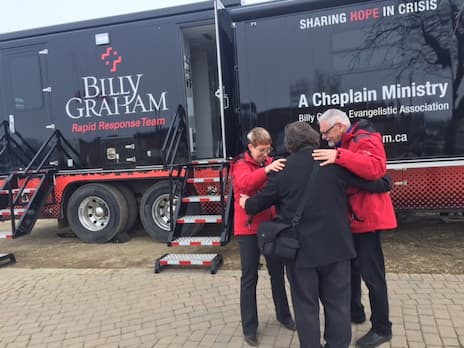
Will I be all by myself when I deploy?
- No, a trained and experienced chaplain coordinator will be onsite to guide volunteer chaplains and lead them through an orientation. Chaplains are sent out to minister in pairs.
How am I notified of a deployment?
- The Billy Graham Rapid Response Team will send an email to chaplain volunteers when a deployment occurs and ask for prayer. The chaplains are also asked for their availability during the expected duration of the deployment.
What are the benefits of being a Billy Graham Rapid Response Team chaplain?
- Thanks to the name and reputation of Mr. Graham and the Billy Graham Rapid Response Team, we are able to bring chaplains to disaster areas that have limited access to the general public. As an approved member of an established chaplaincy organization, such as the Rapid Response Team, you will have the opportunity to offer hope in some of the hardest hit areas. Through this ministry, your daily Christian walk will likely be strengthened and you will be able to serve alongside others as the body of Christ.
Interested in Becoming a Volunteer Chaplain?
Thank you for responding with compassion to the needs of disaster victims. Being a volunteer chaplain is a rewarding ministry, but it can also be very challenging because of the emotional and spiritual demands involved. Please read the application carefully and prayerfully as you consider applying to become a Billy Graham Rapid Response Team volunteer chaplain.
